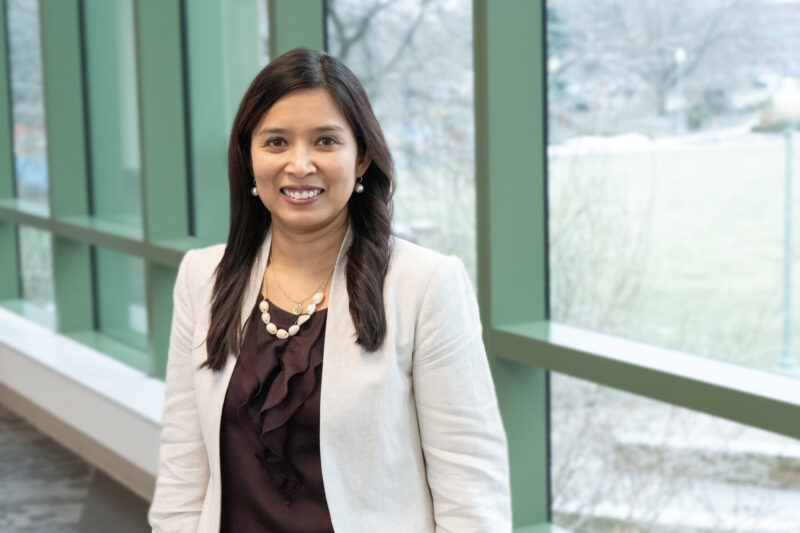As part of Women’s History Month, Dr. Prabi Rajbhandari, pediatric hospitalist and program director for the pediatric hospital medicine fellowship program, shares her thoughts on her career and what it means to be a woman in medicine.
What is your role at Akron Children’s and how long have you been with the hospital?
I am a pediatric hospitalist, which means I primarily take care of children when they get admitted to the hospital and take care of them throughout their hospitalization. Apart from my clinical role, I am also the program director for our newly accredited pediatric hospital medicine fellowship program. I am also involved with quality improvement activities within our division and have led those activities since my time with Akron Children’s for the last five years.

Dr. Prabi Rajbhandari
Do you have a favorite memory or can you share what you love most about your job?
The thing I love the most about Akron Children’s is the people. Our Pediatric Hospital Medicine group of 25+ individuals at the Akron campus is a diverse group of individuals with varied interests and personalities. Still, we genuinely care about each other personally and work as a team. Dr. Jim Nard, our division director, says this often: “If you get hold of one of us, you get all of us,” and I can 100% vouch for it. I absolutely love the teamwork and respect we have for each other within our division. Whether it be when we have a confusing clinical case, are going through something personal, or just need a sounding board, we truly have each other’s backs. I have found people I call friends, mentors, and sponsors right here within my division and within the institute. This is a place with just the right amount of support and the right amount of freedom to keep your motivation and creativity alive – a rare find in today’s world.
What does it mean to you to be a woman in the medical industry?
It means you must be a constant juggler. One minute, I may be talking to a family about their sick child, and 10 min later, I am attending a parent-teacher conference and discussing my child’s homework. In another 10 minutes, I am brainstorming with a trainee on their project. Our minds are shaped up by what we observe and experience. I was born and raised in Nepal, a very patriarchal society with gender-specific roles. Once I came to the U.S., it took me a while to adjust my lens to pick up on subtle microaggressions. Unfortunately, most people themselves are unaware of it.
In medicine, we are yet to create a safe environment to discuss these uncomfortable issues up front for both men and women alike. We are slowly seeing an increased awareness nationally on these issues. If we want to level the playing field for gender issues, women themselves have to step up and dismantle the norms. It begins with nurturing the courage to take risks, embracing differences, building resiliency, and owning yourself without being dismissive or divisive. We have come a long way since Dr. Elizabeth Blackwell received her medical license in 1849 as the first women physician in the U.S.; however, we are far from being done. There are still a lot of challenges for women in healthcare: nontraditional work hours, family obligations, motherhood, pay gap, poor human resource policies, leadership opportunities, and so forth. Yes, being a woman in medicine is challenging, but it’s also the most rewarding thing I do. It’s one of the reasons I wake up content every morning, and that is worth the challenges.










